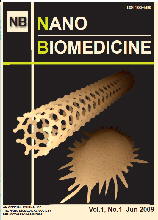Synopsis
The risks of embryotoxicity of pure Ti and Ti alloys used as oral implant materials have not been sufficiently elucidated. The embryonic stem cell test (EST), which allows screening of the fetal teratogenicity of chemical substances, has already been demonstrated to show high predictability by international validation, mainly in Europe. We evaluated the embryotoxicity levels of constituent element ions (Ti, V, Al, Nb, Ta, and Zr) of implants using the EST. As a result, the V ion was found to be associated with some embryotoxicity risks, while the other metal ions showed no embryotoxicity. As previously demonstrated, the V ion shows marked cytotoxicity and carcinogenicity. Therefore, Ti alloys without V ions, such as Ti-6Al-7Nb, should be widely used as implant materials.
Key words: embryotoxicity, Ti, Ti alloy, EST, in vitro
